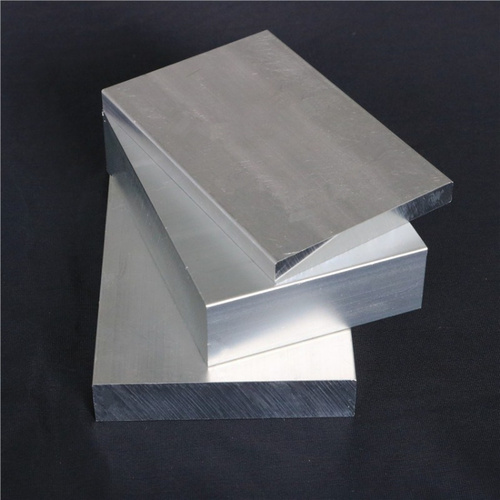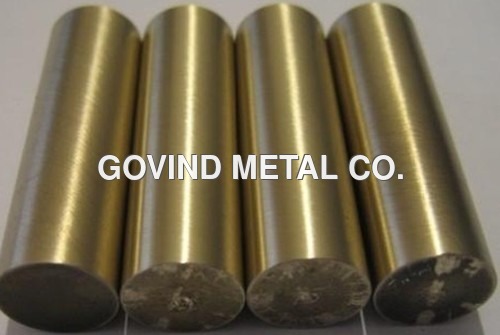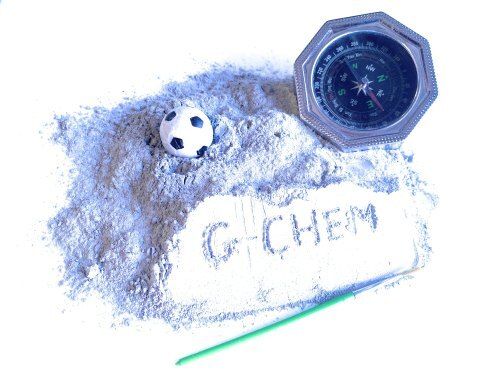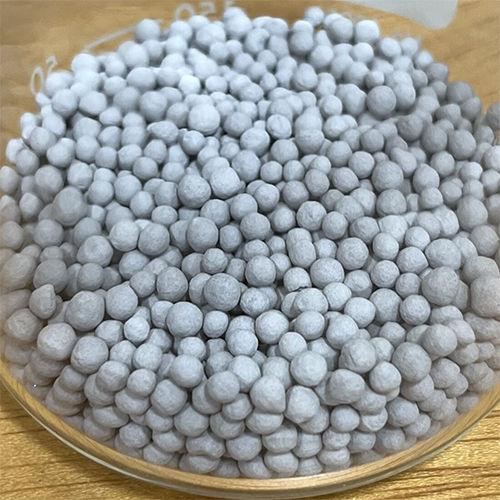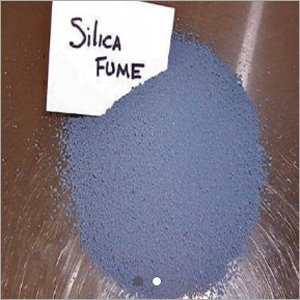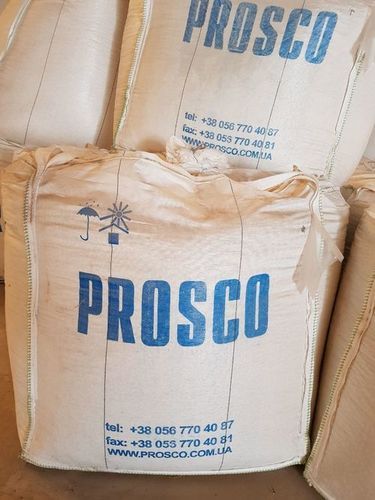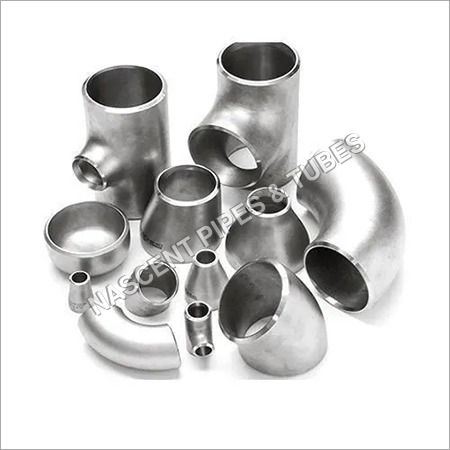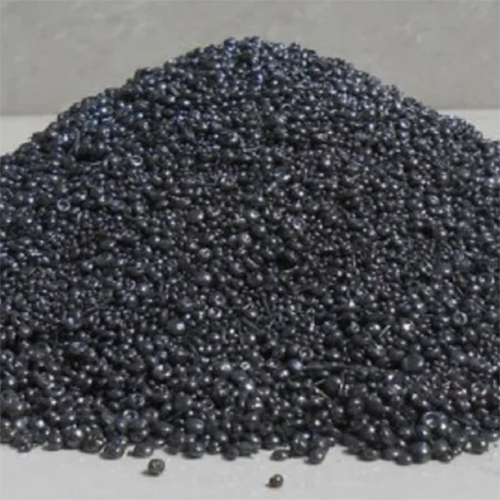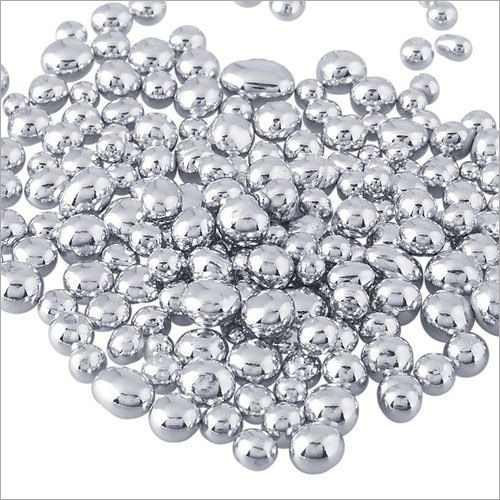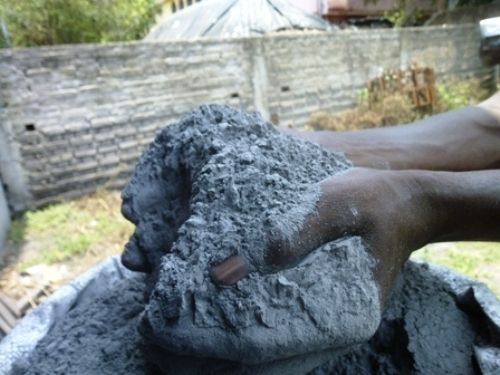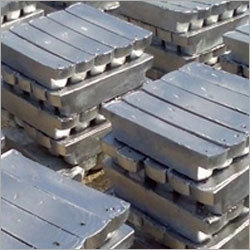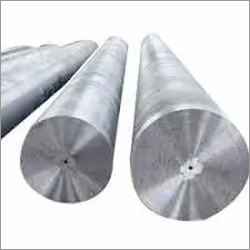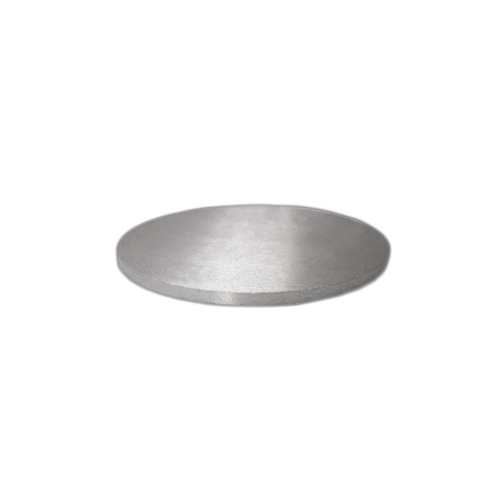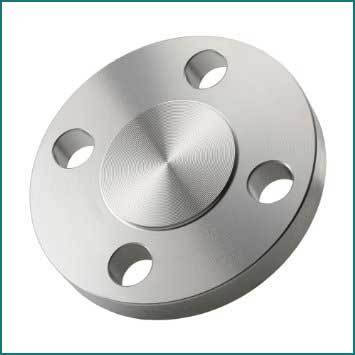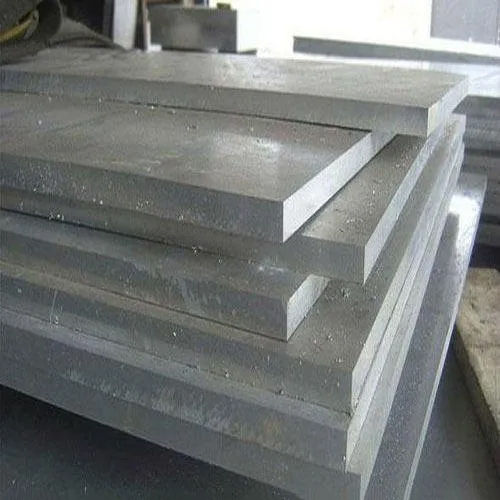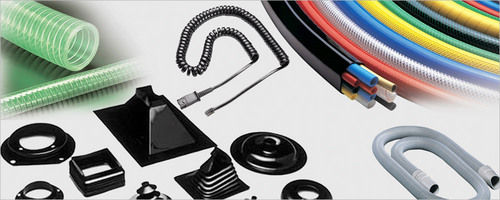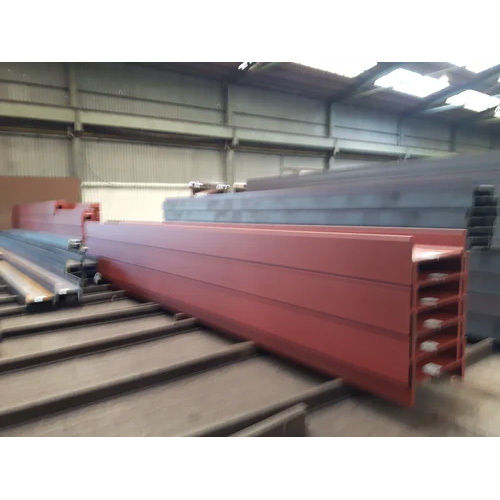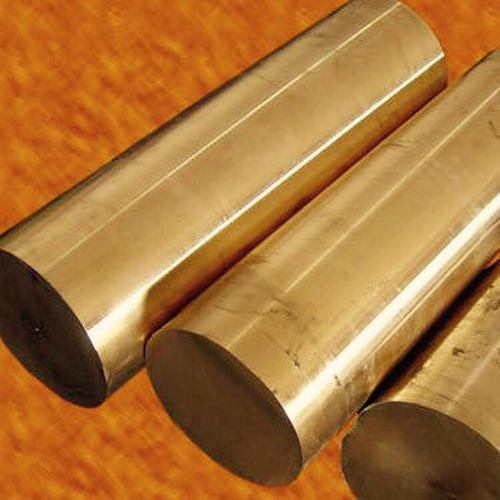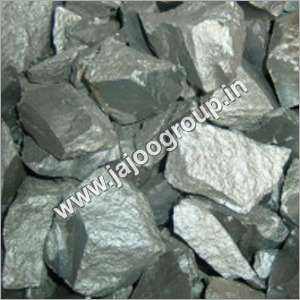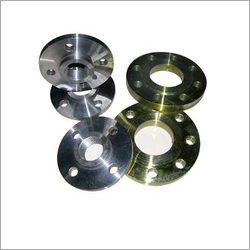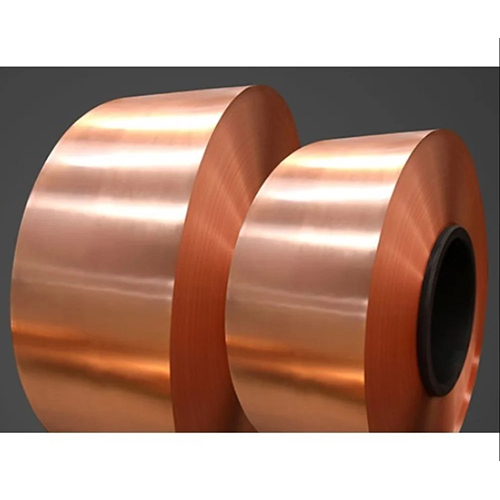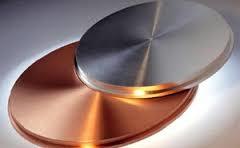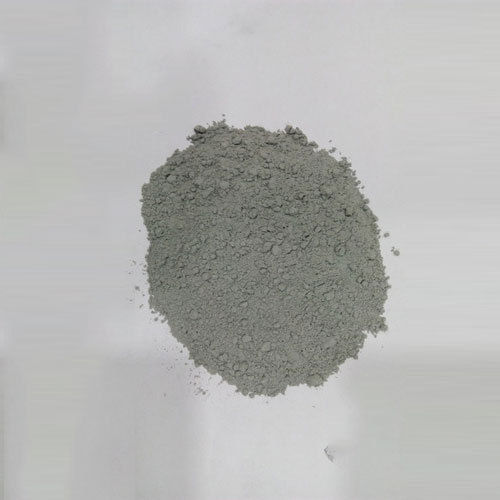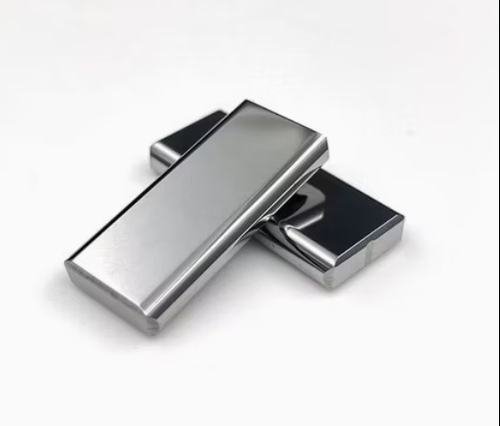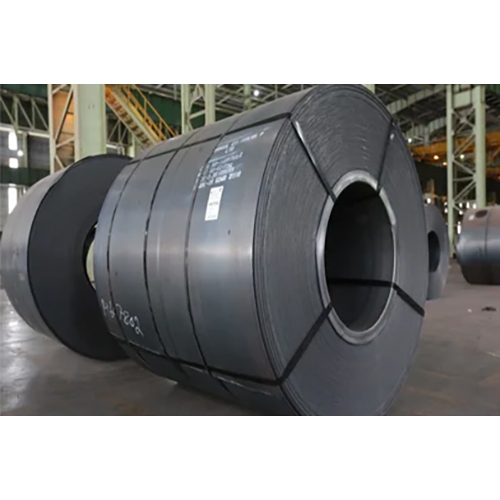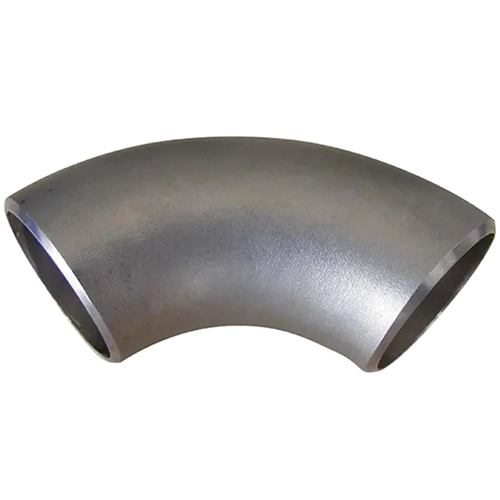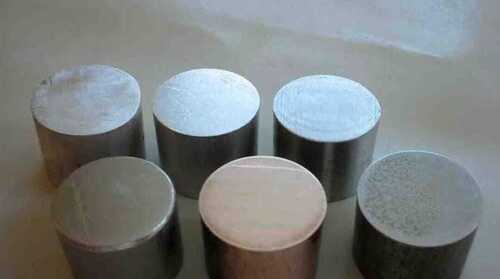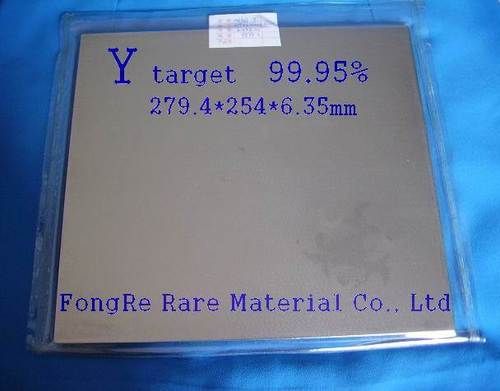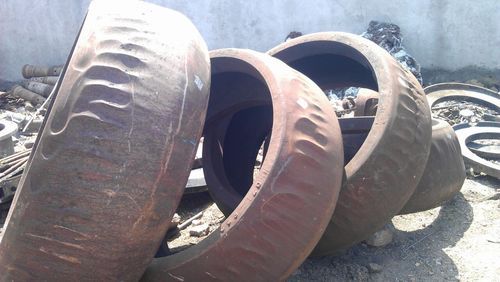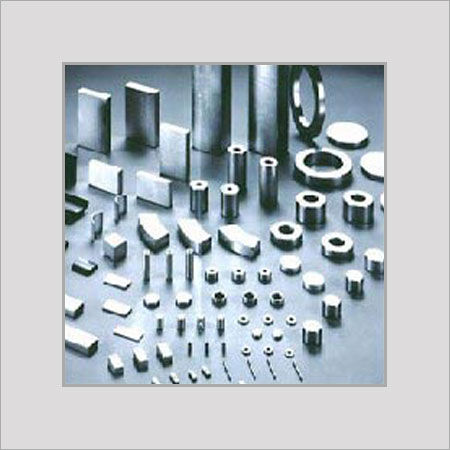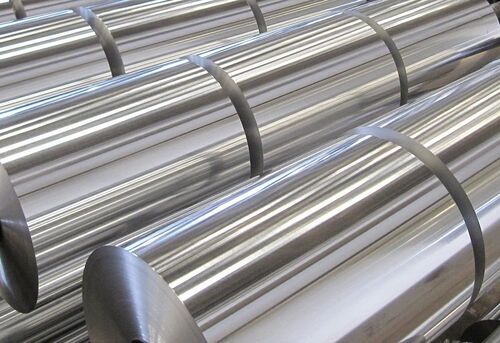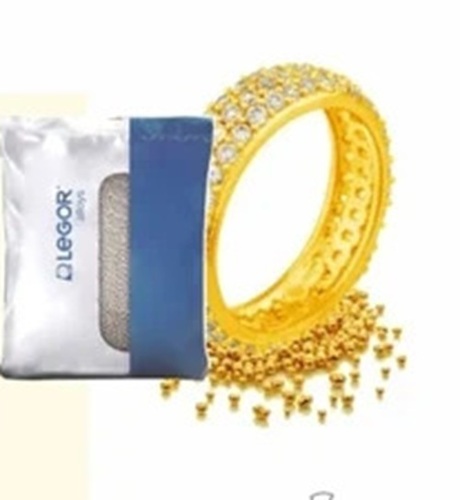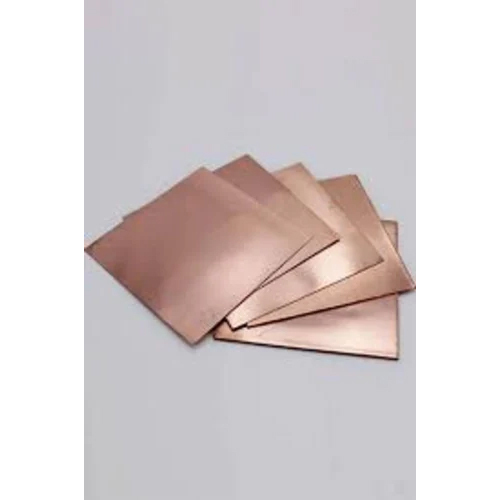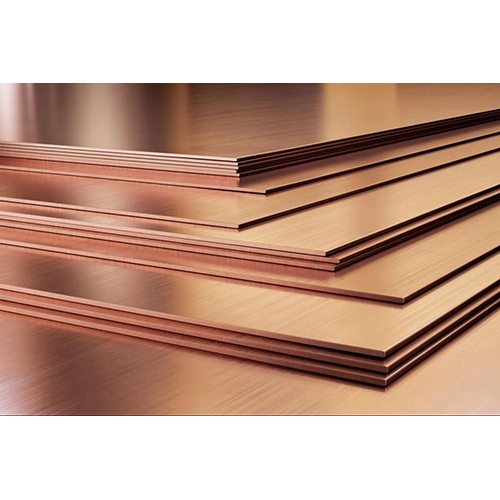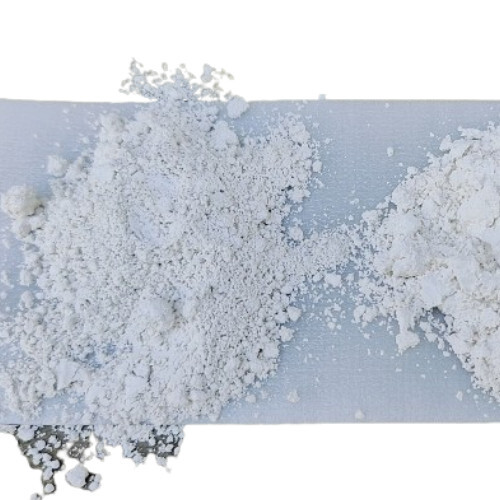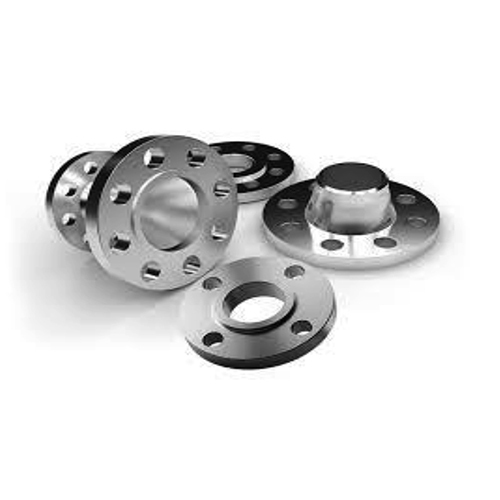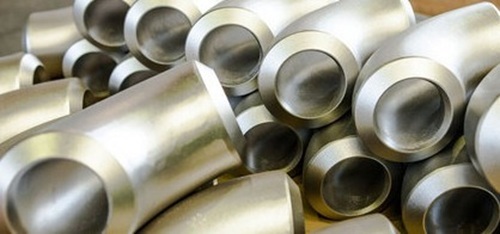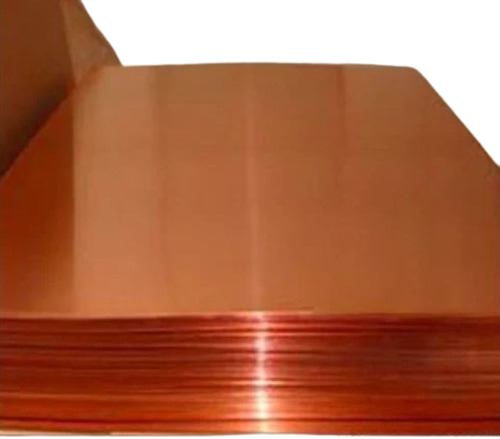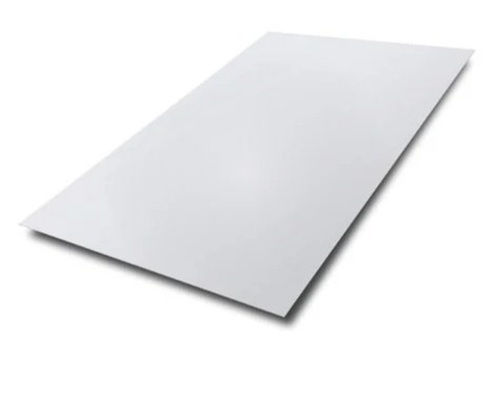Metals & Alloys
(5586 products)Metal Alloy Aluminium Grade Enaw-5040 / Enaw-Almg1.5Mn
Price: 5000 INR/Number
MOQ1 Number
Product TypeMetal Alloy
MaterialAluminium
AlloyMagnesium
ShapeRod, Wire, Bar, Sheet, Roll, Other
ApplicationOther
Manganese Bronze Application: Machinery
Price: 700.00 INR/Kilograms
MOQ500 Kilograms/Kilograms
Hardness100%
Product TypeMetal
MaterialManganese bronze
ShapeBar, Rod
ApplicationMachinery
ColorGolden
Micro Silica Fume Powder
Product DescriptionCoverage Area : High\015\012Type : Powder\015\012Standard : ASTM & BSS\015\012Color : Grey\015\012Grade : Industrial\015\012Packaging Size : 50 Kg\015\012Packaging Type : HDPE Bag\015\012Grade Standard : Industrial Grade\015\012Form : POWDER\015\012Shelf Life : 2 YEAR\015\012Dosage : AS PER MIX DESI
Platinum Catalysts - Application: Metal Component
Price: 3200 INR/Gram
MOQ10 Gram/Grams
HardnessHard
PurityHigh
ColorSilver
ApplicationMetal Component
Silica Fume - Powder Formulation | High Grade Composition for Sealants, Adhesives, Cable Compounds, Plant Protection, and Printing Inks
Price: 15 INR/Kilograms
MOQ50 Kilograms/Kilograms,
Types of RefractoriesOther
ShapePowder
Keolin Clay (Grade-KN83)
Price: 16500.00 INR/Ton
MOQ10 Ton/Tons
Payment TermsCash in Advance (CID), Cheque, Cash Advance (CA)
Supply Ability1 Per Day
Delivery Time1 Days
Monel Metal Application: Construction
Price Trend: 250.00 - 450.00 INR/Piece
MOQ500 , Piece/Pieces
Product TypeMetal Alloy
ApplicationConstruction
Steel Selenium Metal - Application: Construction
Price: 2250 INR/Kilograms
MOQ100 Kilograms/Kilograms
HardnessYes
Purity99%
Product TypeMetal
MaterialSteel Selenium
ApplicationConstruction
ColorGrey
925-Sterling Silver Alloys - Premium Quality, Versatile Jewelry Material for Exceptional Craftsmanship
Price: 1500 INR/Unit
ColorSilver
HardnessSoft to Medium Hard
StrengthModerate
Product TypeMetal Alloy
MaterialSterling Silver
Alloy925-Sterling Silver
Indian Platinum Private Limited
Mumbai
Construction Grade Micro Silica Fume 25 Kg Bag
Price: 12.0 INR/Kilograms
MOQ10000 Kilogram, Kilogram, Kilogram
SmellOther
TasteOdorless
ColorGrey
ShapeGranules
ApplicationOther
Physical FormPowder
Calcium Lead Alloy Application: Metal Component
MOQ10 Metric Ton
PurityHigh
HardnessRigid
MaterialMetal
AlloyYes
ShapeBar
MoistureNil
Hastelloy Round Bar - High Purity Stainless Steel, Silver Color, Hardness Feature | Alloy Metal with Superior Performance
Price: 350 INR/Piece
MOQ10 Piece/Pieces
HardnessYes
PurityHigh
Product TypeMetal
MaterialSS
AlloyYes
ColorSilver
Alcrsiw Sputtering Target Hardness: Rigid
MOQ100 Piece/Pieces
HardnessRigid
PurityHigh
Product TypeMetal
MaterialStainless Steel
AlloyYes
MoistureNil
Ferro Chrome - Superior Grade Alloy , Widely Appreciated for Exceptional Quality
Product DescriptionOur organization hold expertise in supplying a superior grade Ferro Chrome to our precious customers in Kolkata, West Bengal, India. Our offered Ferro Chrome is widely appreciated by our customers, which are situated all round the nation. Known for its best quality, clients can avail this at industr
Inconel Flanges - Round Shape, Silver Color, Painted Surface | Durable Inconel Material for High-Performance Applications
MOQ100 , Piece/Pieces
Product TypeOther, Inconel Flanges
MaterialInconel
ShapeRound
SurfacePainted
ColorSilver
Silver Alloy 20 Plates
Price: 1600 INR/Kilograms
MOQ100 Kilograms/Kilograms
ColorSilver
Product TypeAlloy
MaterialAlloy
Soft TPU Alloys
Product DescriptionWe offer our client an excellent quality range of Soft TPU Alloys, which are manufactured from high grade quality raw materials. These Soft TPU Alloys can be customized as per our precious customers specifications. These Soft TPU Alloys are widely known for its durability and quality. Our Soft TPU
Kk Kompounding Tech Giant Ltd
Mumbai
 Premium Seller
Premium Seller4 Years
European Ipb And Heb Beams Application: Construction
Price: 130 INR/Kilograms
MOQ500 Kilograms/Kilograms
Product NameSteel Products
Steel Product TypeOther, European IPB And HEB Beams
GradeS235, S355J2H
SurfaceMill Finish
ApplicationConstruction
Dimension (L*W*H)Length - 6-12 Millimeter (mm)
Eminent Pipe & Profiles Private Limited
Ghaziabad
 Premium Seller
Premium Seller2 Years
Phosphor Bronze Round Rods Dimension(L*W*H): 1" - 6" Inch (In)
Price Trend: 700.00 - 900.00 INR/Kilograms
Dimension (L*W*H)1" - 6" Inch (in)
Silico Manganese Exporters
Price: 50000 INR/Ton
MOQ27 Ton/Tons
Supply Ability50 Per Week
Delivery Time1 Week
Sample AvailableYes
Inconel Flange - Application: Steel Making
Price: 1000 INR/Piece
MOQ100 , Piece/Pieces
HardnessYes
ColorSilver
Product TypeMetal
MaterialCarbon steel
ShapeRoll
ApplicationSteel Making
Duplex Steel & Engineering Company
Mumbai
441 Silicon Metal Lumps
Price: 300 INR/Kilograms
MOQ1000 Kilograms/Kilograms
FOB Porthajira,porbandar
Packaging Detailsas per product
Phosphor Bronze Coil - Purity: 80-99%
Price: 1150 INR/Kilograms
MOQ100 Kilograms/Kilograms
Purity80-99%
ColorBronze
MaterialPhosphor Bronze
AlloyYes
ShapeRoll
MoistureNil
Sputtering Targets - High Purity Metal Alloys | Enhanced Performance for Advanced Nanotechnology Applications
Product DescriptionOur firm have emerged as one of the most prominent names in the industry, engaged in manufacturing and supplying a comprehensive range of Sputtering Targets in Chennai, Tamil Nadu, India. Sputtering is a process whereby particles are ejected from a solid target material due to bombardment of the tar
Thulir Vacuum Technologies
Chennai
 Trusted Seller
Trusted Seller9 Years
Grey Insulation Powder
Price Trend: 15.00 - 50.00 INR/Kilograms
MOQ1 Ton/Tons
Purity90 %
MaterialFlux
ShapeGrain
ApplicationOther, For Industrial Use
ColorGrey
Mitsubishi Carbides
Price: 3200 INR/Number
MOQ1 Number
Payment TermsCash in Advance (CID)
Supply Ability50 Per Month
Delivery Time2 Days
Inconel 625 Shims & Foils - Stainless Steel, Various Thicknesses & Sizes, Grey Color | High Strength, Corrosion Resistant, Easy to Cut
Price: 360 INR/Kilograms
MOQ10 Kilograms/Kilograms
Purity80-95%
StrengthHigh
MaterialStainless steel
ApplicationOther
ColorGrey
Monel 400 Pipe Elbows - Color: Silver
Price: 5500 INR/Kilograms
MOQ50 Kilograms/Kilograms
HardnessRigid
MaterialMonel
AlloyYes
MoistureNil
ApplicationOther, Industrial
ColorSilver
Gurudev Tubes (india)
Mumbai
 Trusted Seller
Trusted Seller1 Years
Latest From Metals & Alloys
Rare Earth Metals Sputtering Target
By:
Fongre Rare Material Co. Ltd.
Precious Ferrous Metals Alloys
By:
Brrc Metal Products
Metals-Alloys
By:
Dharmi Steel
Hi Chrome ASTM E 1086
By:
Kapasi Metals
Ferro Alloys
By:
Sr Group
Ferro Silicon
By:
Crystal Sleeves Mfg Pvt Ltd
SPECIAL Metals & Alloys
By:
Special Metals
Ready To Ship Metals & Alloys
Metal and Alloys: Types, Advantages and Applications
There is a lot of back and forth concerning whether or not pure metal is better than metal alloys. Metal alloys offer a number of advantages over pure metals. Find out why alloys are preferable to pure metals and how you might benefit from them.
1. Metal alloys are stronger than pure metals
Stronger buildings can be constructed or made utilizing alloys, which is one of its many benefits. Alloys are composites of multiple metals, combining the best qualities of each while eliminating their undesirable ones.
By doing so, a compound is formed that is superior in strength to the metal from which it was derived. Most metals are too soft to be used in their purest form, therefore they are alloyed with one another to make a stronger metal.
As opposed to pure metal, which consists of identical atoms, alloys of metals contain a variety of different elements.
2. Metal alloys are more versatile than pure metals
Alloys of metals can be used in more applications than their pure metal counterparts. Metal alloys are mixtures of multiple metals and non-metals, while pure metals are what they are and don't lend themselves to much manipulation or alteration.
This opens the door to further customization and the enhancement of preferable qualities for specific uses.
3. Metal alloys are more resistant to corrosion than pure metals
The corrosion resistance of metal alloys is often substantially higher than that of pure metals.
The aluminum bronze alloys we sell are extremely sturdy and resistant to corrosion. That's because metal alloys are composites made up of many metals and non-metal components that work together to produce a superior alloy.
Alloys can be engineered to withstand corrosion, whereas pure metals are chemically reactive and readily corrode. Damage from corrosion to metals can quickly add up.
Types of Metal Alloys
1. Cast Iron Alloy
Cast iron is a molten form of iron-carbon alloys with a carbon content of more than 2%. When the metal is melted, it is poured into a mold. There is a distinction between the making of wrought iron and cast iron. You can't hammer or otherwise shape cast iron.
Gray iron gets its moniker because its graphite molecules are flake-shaped. The broken graphite flakes give the fractured metal its characteristic gray appearance.
2. Brass Alloys
The copper and zinc alloy called as brass has made a big historical effect because to its durability and malleability. Calamine brass, the earliest form of brass, was likely made in the Neolithic period through the reduction of copper and zinc ores.
In many instances, ancient manuscripts misunderstand brass, an alloy of copper and tin, and refer to it as bronze.
The ductility of brass depends on its zinc content; brasses with greater than 45% zinc are unworkable in either high heat or extreme cold.
3. Molybdenum Alloys
Powder metallurgy techniques are commonly used in the production of molybdenum. Molybdenum metal is produced by hydrostatically compacting Mo powder and then sintered at about 2100°C (3812°F). Between 1598 and 2300 degrees Fahrenheit (870 to 1260 Celsius), hot work is performed.
4. Niobium Alloys
Niobium, also known as columbium, is a shiny, ductile metal commonly used in alloys. It is used commonly in structural applications, jet engines, and gas pipelines due to its ability to improve steel's properties.
Due to its high performance and resistance to corrosion at high temperatures, niobium metal is used in sputtering targets (sites/places intended to be coated with another material) and processing equipment for chemicals.
5. Titanium Alloys
Many different metals and compounds can be found in titanium alloys, however titanium is usually the dominant metal. Titanium alloys are produced by mixing titanium with other metals and chemical components in a certain ratio.
6. Bronze Alloys
Current bronze typically consists of 88% copper and 12% tin. The history and continued relevance of bronze are two of its greatest attractions.
Bronze is stronger than copper because it is an alloy of copper and tin or another metal.
In addition, bronze can be melted and cast more easily than some other materials. It is stronger and more resistant to corrosion than regular iron.
7. Nickel Alloys
Pure nickel has excellent corrosion resistance, making it useful in the chemical industry. Transducers also make use of it due to its capacity to prevent electromagnetic interference.
Nickel-iron alloys are widely used as soft magnetic materials and glass-to-metal seals due to their low thermal expansion rates.
Invar (UNS K93600), which is composed of 36% nickel and the balance iron, is unusual because it exhibits almost no thermal expansion at ambient temperature.
8. Aluminum Alloys
Aluminum alloys are known for their durability, dependability, and versatility. Like steel, they are one of the most widely used metals & alloys and are in high demand for a wide variety of industrial, architectural, and vehicular uses.
The alloy components are mixed when aluminum is molten (liquid), and a homogenous solid solution is produced upon cooling.
10. Stainless Steel Alloys
It is possible to further enhance stainless steel's mechanical and corrosion resistance by adding other elements such as nickel, titanium, molybdenum, niobium, molybdenum, etc. Because of the chromium in the substance, chromium oxide forms on its surface when exposed to air.
Metal & Alloys Examples
1. Bronze
Coins, blades, and turbines are all made from this metal alloy because of its strength and durability. Commercial bronze, a copper alloy, outperforms copper in terms of strength, outweighs steel in weight, and has a relatively low melting point.
2. Steel
Steel (iron/carbon) combined with chromium, aluminum, or other components produce a metal with exceptional resistance to corrosion. Stainless steel's rust-proof properties come from the chromium it's alloyed with.
3. Brass
Nuts, bolts, pipe fitting, door hardware, appliance trim, clock components, marine engines, seawater pipes, gas valves, and much more all require copper-zinc alloys.
4. Alnico
The alnico is the third strongest magnet material after neodymium and samarium-cobalt because of its ferromagnetic properties.
Commonly Used Elements for Alloying
1. Nickel
Because of its role as an austenite promoter, nickel is a key ingredient in the production of austenitic stainless steels. Austenitic stainless steel is produced when the chromium content is at least 18% and the nickel content is at least 8%.
2. Manganese
Iron and carbon are the two main components of steel, however, manganese is also commonly added to help with heat treatment. In order to increase the hardness and strength of steels, they must be heated and then quickly quenched. Instability increases when the rate at which this occurs increases.
3. Vanadium
The grain size of the steel can be kept tiny with the help of vanadium. The addition of vanadium to steel prevents the production of grains, which keeps the grain size manageable.
4. Molybdenum
Like chromium, molybdenum can improve steel's resistance to corrosion. Steel's hardenability, toughness, and tensile strength can all be improved with the addition of molybdenum.
By decreasing the necessary quench rate during heat treatment, hardenability is increased, allowing for the creation of a steel that is both strong and hard.
5. Chromium
Stainless steel is created when more than 11% chromium is added to carbon steel. Because iron is shielded from oxidation in many conditions, steel's corrosion resistance is much enhanced with this carbon level. Because chromium oxidizes before iron does, it forms a barrier that prevents the iron from rusting.
FAQs: Metal and Alloys
Q. Metal Alloys Applications?
Ans. Here are the applications:
1. Belts, staples, cables, Screening, welds, catheters, and suture wires are just some of the many applications for wire and ribbon made from stainless steel.
2. Jewelry is commonly made out of gold and silver alloys. As a more affordable alternative to platinum, white gold (an alloy of gold, silver, palladium, and nickel) is frequently used.
3. In a wide range of sectors, several alloys are used for welding.
4. Because of their resistance to corrosion, alloys find application in wet environments.
5. High-temperature alloys are essential in the petrochemical and aerospace sectors. Wire welding under extreme conditions and high temperatures has also been successfully implemented using these alloys.
Q. What are Metal Alloys?
Ans. At least one of the constituent chemicals in an alloy must be a metal. In contrast to compounds with metallic bases, the properties of a metal, such as its opacity, conductivity, luster and ductility, are maintained in an alloy.
Q. What is the difference between metal and alloy?
Ans. Pure metals have only one kind of atom in them. One such pure metal is chromium, which can be verified by looking it up on the periodic chart. In contrast, atoms of different elements are melted together to form an alloy.
Q. What are the types of alloys?
Ans. Here are the basic types:
1. Aluminium Alloys
2. Stainless Steel Alloys
3. Nickel Alloys
4. Gold Alloys
Q. What are metals and alloys used for?
Ans. They find widespread application in the aerospace, manufacturing, healthcare, and defense sectors. Aluminum, nickel, copper, stainless steel, and titanium are only few of the alloys used in industrial and automobile production.
Related Topic:
Metals & Alloys Manufacturers, Suppliers & Exporters in India - Top 10
Manufacturers & Suppliers of Metals & Alloys
Company Name | Member Since |
|---|---|
Steel Mart Mumbai, India | 19 Years |
Govind Metal Co. Ahmedabad, India | 17 Years |
Adinath Industries Kishangarh, India | 17 Years |
Duplex Steel & Engineering Company Mumbai, India | 17 Years |
Indian Platinum Private Limited Mumbai, India | 16 Years |
Jajoo Exports Jaipur, India | 14 Years |
Guru Corporation Ahmedabad, India | 12 Years |
Rakesh Metal & Tubes Mumbai, India | 12 Years |
Nascent Pipes & Tubes Mumbai, India | 11 Years |
Refsteel Solutions Ahmedabad, India | 9 Years |
Popular Products

